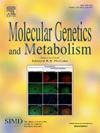The PKU Patient Registry: Development of a patient-driven registry and initial outcomes
IF 3.5
2区 生物学
Q2 ENDOCRINOLOGY & METABOLISM
引用次数: 0
Abstract
A patient registry facilitates collection of data on a group of patients with similar conditions. While some registries collect clinician-input data, patient-entered registries prioritize the perspective of patients and families. To better support research for phenylketonuria (PKU), National PKU Alliance (NPKUA) launched the PKU Patient Registry in 2017 to collect patient-entered lived experience and natural history data. It gathers medical information and queries the lived experience of PKU through the completion of surveys, developed by a group of key stakeholders, individuals with PKU, and healthcare providers which includes validated tools and patient surveys. The data collected provide insights about the needs of the community and assist in recruitment for external research studies. This Registry uses the National Organization for Rare Disorders' IAMRARE® platform, as it is a secure, user-friendly system compliant with federal and state information privacy laws. The Registry and participant data are owned by NPKUA on behalf of the PKU community and are governed by NPKUA and the Registry Advisory Committee. As of November 2024, there are 1125 consented participants representing 46 states plus the District of Columbia and 36 different countries with the completion of 123,044 surveys over the past seven years. Since the Registry's inception, it has supported recruitment for over 35 external research studies and shared anonymized data through industrial and federal collaborations. The PKU Patient Registry collects longitudinal patient-entered data and allows for collaboration with other PKU datasets, permitting an improved understanding of the natural history of this condition.
北京大学患者登记:患者驱动登记和初步结果的发展
患者登记有助于收集一组具有相似病情的患者的数据。虽然一些登记处收集临床医生输入的数据,但患者输入的登记处优先考虑患者和家庭的观点。为了更好地支持苯丙酮尿症(PKU)的研究,全国苯丙酮尿症联盟(NPKUA)于2017年启动了苯丙酮尿症患者登记,以收集患者输入的生活经历和自然病史数据。它收集医疗信息,并通过完成由一组关键利益相关者、PKU患者和医疗保健提供者(包括经过验证的工具和患者调查)开发的调查来查询PKU患者的生活经验。收集的数据提供了有关社区需求的见解,并有助于招募外部研究人员。该注册使用国家罕见疾病组织的IAMRARE®平台,因为它是一个安全,用户友好的系统,符合联邦和州信息隐私法。注册表和参与者数据由北大校友会代表北大社区拥有,并由北大校友会和注册表咨询委员会管理。截至2024年11月,共有来自46个州和哥伦比亚特区以及36个不同国家的1125名同意参与者,在过去7年中完成了123044项调查。自注册中心成立以来,它已支持超过35项外部研究的招聘,并通过工业和联邦合作共享匿名数据。PKU患者登记处收集患者输入的纵向数据,并允许与其他PKU数据集协作,从而更好地了解这种疾病的自然历史。
本文章由计算机程序翻译,如有差异,请以英文原文为准。
求助全文
约1分钟内获得全文
求助全文
来源期刊

Molecular genetics and metabolism
生物-生化与分子生物学
CiteScore
5.90
自引率
7.90%
发文量
621
审稿时长
34 days
期刊介绍:
Molecular Genetics and Metabolism contributes to the understanding of the metabolic and molecular basis of disease. This peer reviewed journal publishes articles describing investigations that use the tools of biochemical genetics and molecular genetics for studies of normal and disease states in humans and animal models.
 求助内容:
求助内容: 应助结果提醒方式:
应助结果提醒方式:


